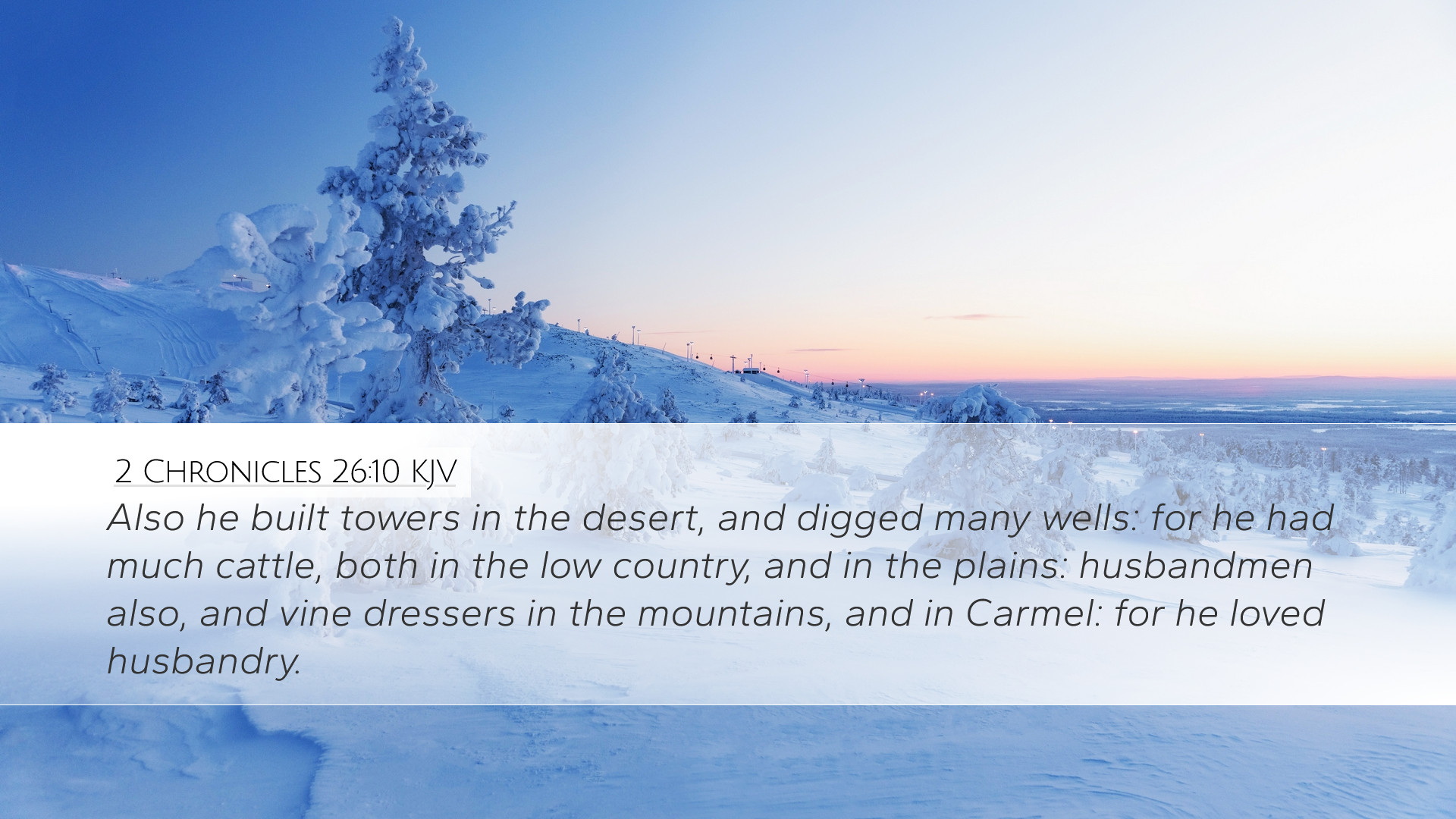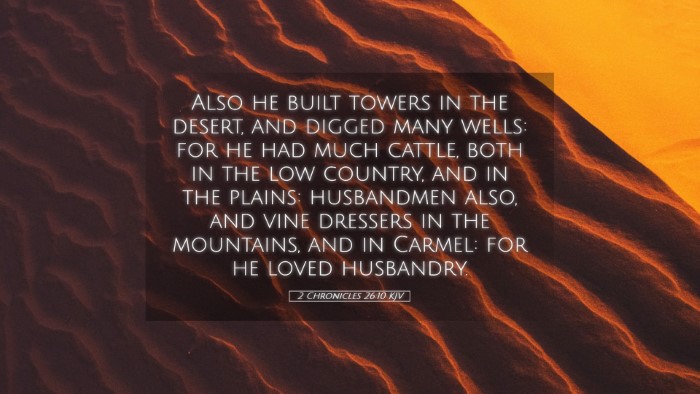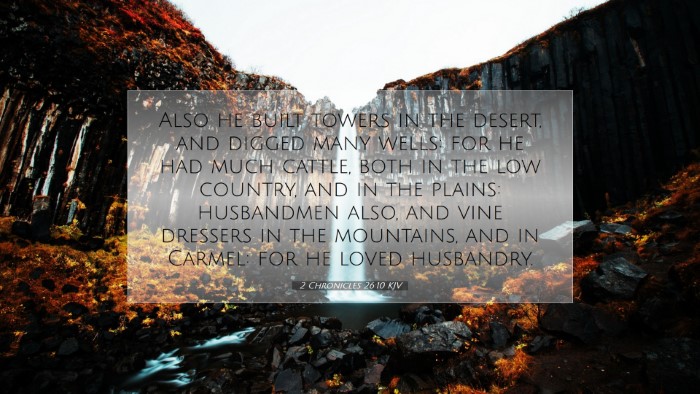Commentary on 2 Chronicles 26:10
Verse Context: 2 Chronicles 26:10 states, "Also he built towers in the desert, and digged many wells: for he had much cattle, and husbandry in the low plains, and vine-dressers in the mountains, and husbandmen in the vales: for he loved husbandry."
Introduction
This verse serves as an important highlight of King Uzziah's reign over Judah. It emphasizes his administrative capabilities, his agricultural policies, and his innovative contributions to infrastructure, all of which were instrumental in the prosperity and stability of his kingdom. The analysis of this verse draws richly from the insights of public domain commentaries, particularly those by Matthew Henry, Albert Barnes, and Adam Clarke.
Historical and Theological Significance
The historical background of King Uzziah is crucial to fully appreciate the nuances of this verse. Uzziah, also known as Azariah, is recognized for his long and prosperous reign. He was noted for adhering to the ways of the Lord, which contrasts with many of his predecessors. This reverence for God paved the way for his successful endeavors, including agricultural advancements that are highlighted in this verse.
- Divine Favor: Uzziah's achievements can be attributed to his quest for divine favor through obedience and righteousness.
- Development of Agriculture: Investing in agriculture not only provided sustenance for the nation but established Judah as a significant economic player among surrounding nations.
- Infrastructure Improvement: The building of towers in the desert demonstrates Uzziah's foresight in addressing both security and agricultural needs.
Commentary Insights
Insights from Matthew Henry: Henry emphasizes the importance of King Uzziah's dedication to husbandry, noting that his love for agriculture was not merely a personal pursuit but was reflective of his responsibility to the people of Judah. He highlights that Uzziah’s endeavors in agriculture and resource management contributed significantly to national stability and security.
Insights from Albert Barnes: Barnes elaborates on the agricultural activities mentioned in the verse. He articulates that the building of towers was multifaceted—serving both as agricultural storage and defense against invaders. Moreover, the establishment of wells indicates an understanding of the geographical needs of livestock and crops, ensuring a sustainable environment for his subjects.
Insights from Adam Clarke: Clarke provides a detailed examination of the terms used in the verse. He notes the various roles of 'husbandry' and 'vine-dressers', signifying the diversified economy that Uzziah cultivated. Clarke posits that Uzziah's agricultural policies reflected broader theological implications, such as stewardship of God's creation, which resonates with scriptural mandates regarding cultivation and management of the land.
Practical Applications for Today
The insights from this verse encourage a multifaceted approach to leadership and responsibility:
- Stewardship: Modern leaders are challenged to embrace stewardship not only of resources but also of the communities they serve, balancing economic development with spiritual and ethical considerations.
- Vision and Planning: The foresight demonstrated by Uzziah in building infrastructure and investing in agriculture serves as a model for contemporary planners who must consider long-term implications of their decisions.
- Community Engagement: Uzziah’s commitment to agricultural development emphasizes the need for leaders to engage actively with the foundational needs of their communities, fostering a sense of responsibility and care for the environment.
Conclusion
The verse from 2 Chronicles 26:10 encapsulates the essence of King Uzziah’s character as a ruler who prioritized the welfare of his people and the effective management of God-given resources. The combined insights from Matthew Henry, Albert Barnes, and Adam Clarke illuminate the complexities behind Uzziah's achievements. As stewards in modern contexts, we are called to reflect on these principles, ensuring that our leadership, whether spiritual or secular, aligns with the values of diligence, foresight, and care for creation.


